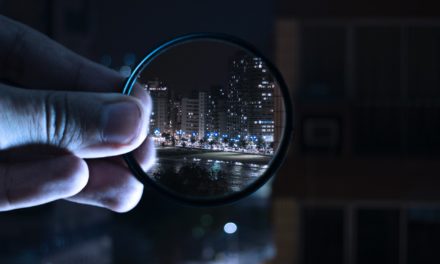Recapturing the Art of Thinking Deeply
Regain your ability for keen observation of God’s work in our world, issues in our own souls, and opportunities to meet others needs. | by Dale O’Shields
Observation is a powerful thing. In our world, when traveling to a new or unfamiliar destination, we employ navigation aids. Explorers once relied heavily on instruments like the compass, or, if on the sea, a sextant. Societies eventually advanced to charts, atlases, or special maps. Today we use electronic apps. Apple Maps, Google Maps or Mapquest have become our "go to" to "get there." We hardly think about what road to take or turn to make. A voice guides us to the doorsteps of our desired destinations.
But how did the ancients, without such aids, explore new territories and still find their way back home? How did sailors of years gone by navigate open waters before the invention of the compass, the sextant, charts, or now, sophisticated electronic chart-plotters? How did people travel unknown lands, crossing mountains, wildernesses and prairies, without becoming hopelessly lost? After all, I sometimes get lost in the parking lot at the local mall. Fortunately, my smartphone now marks my car’s location, and I’m sure that soon the car will automatically find me and pick me up.
How did they do it? The answer — they were keen observers of nature. They observed the alignment of the stars. They observed the flight paths of birds. They observed the shapes and movement of the clouds. They observed the way plants and trees grew, and how the foliage rustled in the wind. They observed the paths and patterns of animals. They knew how to slow down, watch, listen and learn from the world around them. They were master, expert observers. Their survival depended on the art and skills of observation.
We have since lost some of what they had. Although technology is a blessing, it sometimes breeds a mindlessness when it comes to getting places. No need to pay attention because either Siri, Alexa, or Google will do the thinking for you and get you there.
Not only has observation become obsolete in navigation, we’ve also neglected it in many other areas. As we race through daily life, we’re bombarded with massive amounts of often worthless, or even worse, agitating and anxiety-producing information. We’re surrounded by ever-present noise and distractions. The result is numbness. We shut off and check out.
On a personal level, we stop thinking deeply, if we think at all. We observe little or nothing about God’s work in our world. We overlook the important issues in our own souls. We miss opportunities to meet needs in people who are part of our lives. We lose sight of priorities and pursuits that really matter in the world.
Perhaps there’s an inverse correlation between technological depth and spiritual, psychological and relational shallowness. Could the advance of one contribute to the decline of the other? Is it possible that the more technology thinks and observes for us, the less we think and observe for ourselves?
To survive and thrive, the people of millennia and centuries past depended on their capacity to observe. It’s likely our lives would be better if we became more observant, too.
Let’s slow down and observe:
• The presence, love and goodness of God around us.
• The deeper issues in our souls needing attention, cleansing, transformation, refining and restoration.
• The needs of people around us — their need for love, encouragement, hope, help and healing.
• The world’s brokenness, false promises, deceptive priorities and foolish solutions, rooted in their lack of relationship with a loving God and grasp of His wisdom-giving Word.
May each of us as church leaders increase our capacity to grow our churches by pausing to learn something about navigation by observation.






